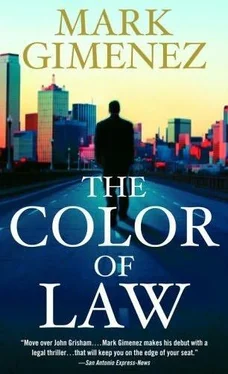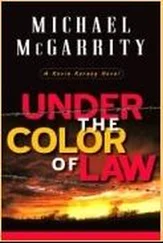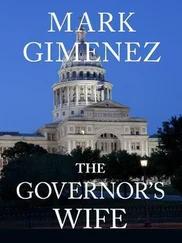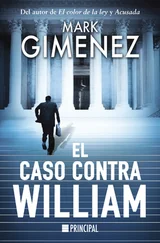Mark Gimenez - The Color of Law
Здесь есть возможность читать онлайн «Mark Gimenez - The Color of Law» весь текст электронной книги совершенно бесплатно (целиком полную версию без сокращений). В некоторых случаях можно слушать аудио, скачать через торрент в формате fb2 и присутствует краткое содержание. Жанр: Криминальный детектив, на английском языке. Описание произведения, (предисловие) а так же отзывы посетителей доступны на портале библиотеки ЛибКат.
- Название:The Color of Law
- Автор:
- Жанр:
- Год:неизвестен
- ISBN:нет данных
- Рейтинг книги:3 / 5. Голосов: 1
-
Избранное:Добавить в избранное
- Отзывы:
-
Ваша оценка:
- 60
- 1
- 2
- 3
- 4
- 5
The Color of Law: краткое содержание, описание и аннотация
Предлагаем к чтению аннотацию, описание, краткое содержание или предисловие (зависит от того, что написал сам автор книги «The Color of Law»). Если вы не нашли необходимую информацию о книге — напишите в комментариях, мы постараемся отыскать её.
The Color of Law — читать онлайн бесплатно полную книгу (весь текст) целиком
Ниже представлен текст книги, разбитый по страницам. Система сохранения места последней прочитанной страницы, позволяет с удобством читать онлайн бесплатно книгу «The Color of Law», без необходимости каждый раз заново искать на чём Вы остановились. Поставьте закладку, и сможете в любой момент перейти на страницу, на которой закончили чтение.
Интервал:
Закладка:
“Come on, Delroy, admit it! I know you killed Clark! This jury knows you killed Clark! Even the senator knows you killed Clark!”
Delroy’s face was red and sweaty. His breathing became faster and labored. His blood pressure was rising, causing the veins in his bald head to protrude like blue ropes against his white skin. His meaty hands closed in on the photograph in his lap and crumpled it into a ball, mashing it mightily as if trying to pulverize the memory of Clark McCall into pulp. Scott knew things were about to get out of hand; Delroy’s rage would soon take over and he would scream: Yeah, I killed Clark! Yeah, I killed that little fuckup!
But when Delroy’s big bald head finally turned up, his eyes were defiant. He said, “Then prove it.”
“The defense rests, Your Honor.”
Ray Burns tried to save his Washington job by calling FBI Agent Henry Hu to the stand again and eliciting somewhat reluctant testimony that a left-handed person could have fired the murder weapon with her right hand. When Ray sat down, Scott stood and picked up the nearest document.
“Your Honor, may I approach the witness?”
“Yes, Mr. Fenney.”
Scott walked around the defendant’s table and toward the witness stand, and at the last moment, stumbled on an imaginary obstacle, tossing the document to the floor next to the witness stand. As Scott righted himself, Agent Hu, courteous as always, got out of the chair, took two steps, leaned over and picked up the document. Standing no more than two feet from the jury box, Agent Hu held the document out with his right hand.
Scott said, “Agent Hu, are you right-handed?”
Agent Hu realized his silent testimony, that he had picked up the document with his right hand because that was the natural thing to do, what anyone would do, even Clark McCall’s killer. He smiled slightly.
“Yes, I am.”
“No further questions.”
Karen and Bobby were cooking pasta in the kitchen, the girls were taking their baths, and Scott was slumped on the floor, mentally and physically exhausted. Bobby opened the refrigerator, pulled out two beers, walked over to Scott, and held one out to him.
“No matter what happens tomorrow, Scotty, you’ve done right by her.”
“Thanks, Bobby. And just so you know, I did this for Shawanda. Not to get back at Mack McCall or Dan Ford. For her.”
“Thanks for telling me that, Scotty. I needed to know.”
“I know. And thank you, Bobby.”
“For what?”
“For doing this, being part of this, working your tail off even though you’re not getting paid.”
The beer halfway to his mouth, Bobby froze: “I’m not getting paid?”
After prayers, Pajamae opened her eyes and said, “Mr. Fenney, I don’t want that McCall man to be the president.”
Scott smiled. “Me neither.”
“And that Delroy, he’s a bad man, isn’t he, Mr. Fenney?”
Boo said, “He killed Clark?”
“He is and he did.”
“Is he going to jail?”
“I don’t know.” Scott stood. “You girls go to sleep. We’ve got another big day tomorrow, closing arguments, maybe a verdict.”
“Mama might get out tomorrow?”
“She might. But she might not.”
Pajamae thought about that, then said, “Thanks, Mr. Fenney.”
“For what, baby?”
“For caring about my mama.”
Scott removed his glasses and wiped his eyes. “Pajamae, my life is better now because of your mother. And because of you.”
THIRTY
A Scott Fenney, ESQ., stood before the twelve members of the jury and said: “When I was a boy, my mother used to read her favorite book to me at bedtime, To Kill a Mockingbird. You might’ve read it or seen the movie. It’s the story of a little girl and her father, a lawyer named Atticus Finch. He was an honorable man and an honorable lawyer, unusual even back then, in the 1930s when the story took place.
“Every night my mother would say to me, Scotty, be like Atticus. Be a lawyer. Do good. She even named me after him, Atticus Scott Fenney. Well, my mother’s dead and I’m a lawyer, but I’m no Atticus Finch. I haven’t done much good. I made a lot of money, but I didn’t make my mother proud.
“But that’s another story.
“Or maybe it’s the same story. Because this story, our story, the story playing out in this courtroom, is also about making your mother proud.
“See, in the book, Atticus was appointed to represent a black man named Tom Robinson. Tom was accused of beating and raping a white girl. Atticus showed the jury that the girl had been beaten by a left-handed man because the right side of her face was bruised, but that Tom’s left hand was disabled due to an accident years before. Atticus proved that Tom didn’t do it. And Atticus also showed the jury that the girl’s father was left-handed and a mean drunk to boot. Well, everyone in the courtroom knew that Tom didn’t commit the crime and that her father did. But the jury, twelve white men, convicted Tom Robinson anyway, just because he was a black man.
“Now, that story took place in Alabama in the thirties-in a different time and a different world, back when the color of law was black-and-white. But our story is taking place seventy years later, in Dallas, Texas. The world’s a different place today, things have changed-not everything and not everywhere and not enough, but in our courts of law things have surely changed. Judges have changed. Juries have changed. The color of law has changed. It’s no longer black-and-white. My former senior partner told me the color of law is now green. Today, he said, the rule of law is money. Money rules. And he’s right. Lawyers use the law to make money, politicians sell the law to special interests for money, people sue each other for money. Everywhere in the law, it’s all about money-except one place. Right there where you’re sitting, in that jury box. You’re not here for money. You’re here for the truth.
“And what is the truth of this story? The first truth is, Clark McCall was murdered by a right-handed person, a person strong enough to yank him up off the floor, mean enough to stick a gun to his head and look him in the eye when he pulled the trigger, and experienced enough in the ways of murder investigations to know how not to leave incriminating evidence behind. The truth is, Delroy Lund murdered Clark McCall.
“The second truth is, Delroy Lund followed Clark to Dallas, followed him down to Harry Hines, saw him pick up the defendant wearing her blonde wig, and followed them home to Highland Park. When he saw the defendant driving off in Clark’s Mercedes, he went inside. He found Clark alive, naked and holding his privates after being kicked in the groin by the defendant. He laughed at Clark and Clark got mad. Clark cursed Delroy, Delroy got mad, and Clark got killed. Things got out of hand, and Delroy killed Clark.
“And the third truth is, Shawanda Jones is innocent. Clark McCall was killed by a right-handed person. Shawanda Jones is left-handed. She didn’t do it.
“That’s the truth. That’s what the evidence shows. We’ve proved that the defendant is innocent and we’ve answered the question this trial presented: Who killed Clark McCall? Now there’s only one part of this story left and you’ve got to write it: the ending. How is this story going to end? Like To Kill a Mockingbird, with an innocent defendant convicted just because she’s black? Or are you going to write a new ending, where the color of law is not black or white or green, where truth and justice prevail even if the defendant is poor and black?”
Scott paused and glanced over at the judge for a long moment, then turned back to the jurors. He said: “Ladies and gentlemen, before Judge Buford appointed me to represent the defendant, I thought I was a winner in the game of law-and that’s how I viewed the law, as just a game. When I tried a case, I wanted to win. I wanted to beat the other lawyer. It wasn’t about truth or justice; it was just about winning…and money. But I was wrong. The law isn’t a game. It’s not about winning or money. It’s about truth and justice…and life. Today, it’s about the defendant’s life.
Читать дальшеИнтервал:
Закладка:
Похожие книги на «The Color of Law»
Представляем Вашему вниманию похожие книги на «The Color of Law» списком для выбора. Мы отобрали схожую по названию и смыслу литературу в надежде предоставить читателям больше вариантов отыскать новые, интересные, ещё непрочитанные произведения.
Обсуждение, отзывы о книге «The Color of Law» и просто собственные мнения читателей. Оставьте ваши комментарии, напишите, что Вы думаете о произведении, его смысле или главных героях. Укажите что конкретно понравилось, а что нет, и почему Вы так считаете.












